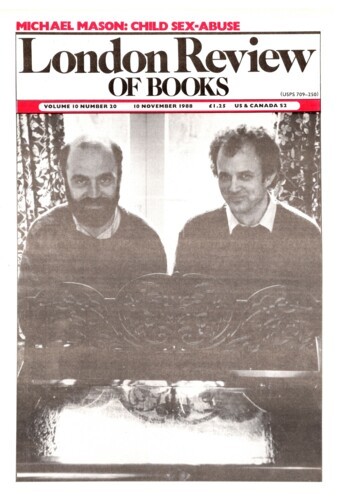The First Emperor
T.H. Barrett, 10 November 1988
Emperors of China are in the West much more like fairy-tale figures than denizens of anything recognisable as the real world. Even when we see the terracotta parade of a Chinese imperial army before our very eyes, how can we begin to fathom the absolute, autocratic will that brought such an array into being? No wonder mat Morris Rossabi, in the opening sentence of his biography of Khubilai Khan, hastens to assure us that this is a book about a real person. For up till now it is Khubilai’s function in the imaginative life of the West which has been his main claim to fame; and unless the motion picture industry succeeds in elevating the complete cipher Puyi to a lasting position of spurious importance in our perception of Chinese history, one supposes that for the English-speaking world Kubla and Xanadu will stand for ever as symbols of Oriental splendour. It may be that Khubilai and the last emperor are more accessible to us than most of their kind since both were themselves non-Chinese, and both formed friendships with Westerners, so that descriptions of their personalities through European eyes survive. But Marco Polo dominates European literature on Asia in a way Sir Reginald Fleming Johnston does not, and while the last emperor was a Manchu, scion of a dynasty which from the start was prepared to accommodate itself to Chinese civilisation, Khubilai was not merely emperor of China alone but also Great Khan of the Mongols.

